Services
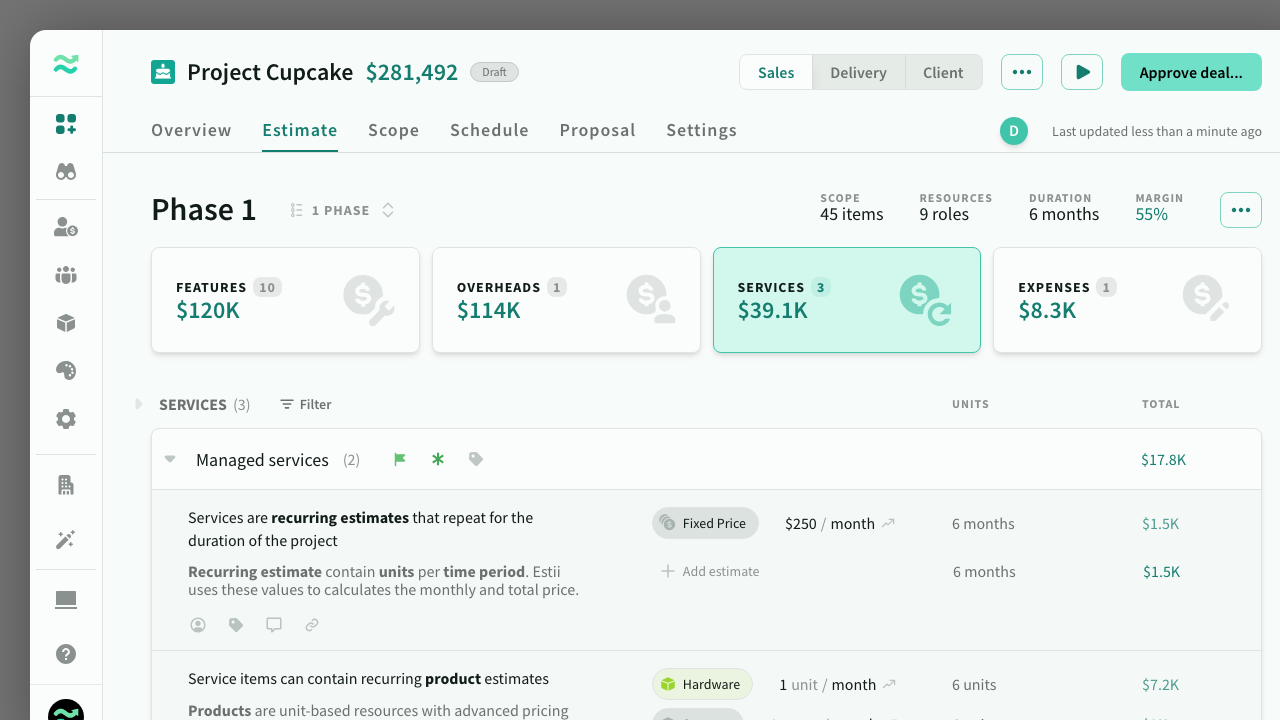
IN THIS ARTICLE
A service is a unit-based product estimate that is repeated for the entire duration of a phase, and whose total price updates as the schedule changes
Services are used to estimate recurring costs - such as managed services, license subscriptions and hosting plans that are based on a number of units/volume of a pre-defined product.
For example:
- A monthly 'gold' support package priced at $5K a month
- An per-user subscription for 500 users / month
- An analytics service priced at 10K events / day
- A backup service priced at up to 100GB / month
- An excessive supply of caffeine to maximise productivity of developers (100 coffees / hour)
Services are located in Deal > Estimates > Services.
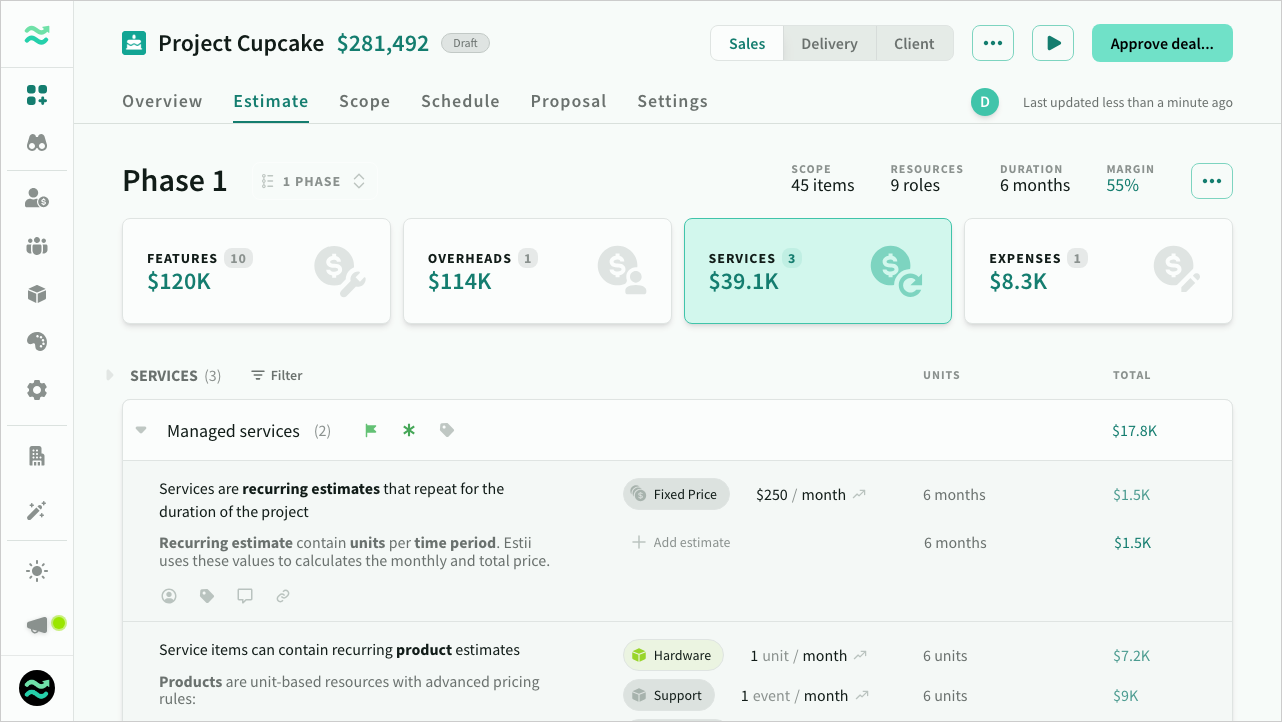 Example of recurring services (from the updated sample deal)
Example of recurring services (from the updated sample deal)
Estimating services
Services are similar to features - however you can only estimate fixed price and unit-based product resources (not roles or streams). You only have to estimate the units for a specific time period (months, days, etc) and Estii automatically calculates to total units and price based on the phase duration.
- You can assign up to 10 estimates per item.
- Products automatically displays the units and time period based on the product settings
- If a product doesn't have a time period, it will default to month (e.g. 1 user / month). You can easily change the units and time period to suite your estimate (e.g. 10 users / day)
- You can also estimate against unit Variable units that change over time
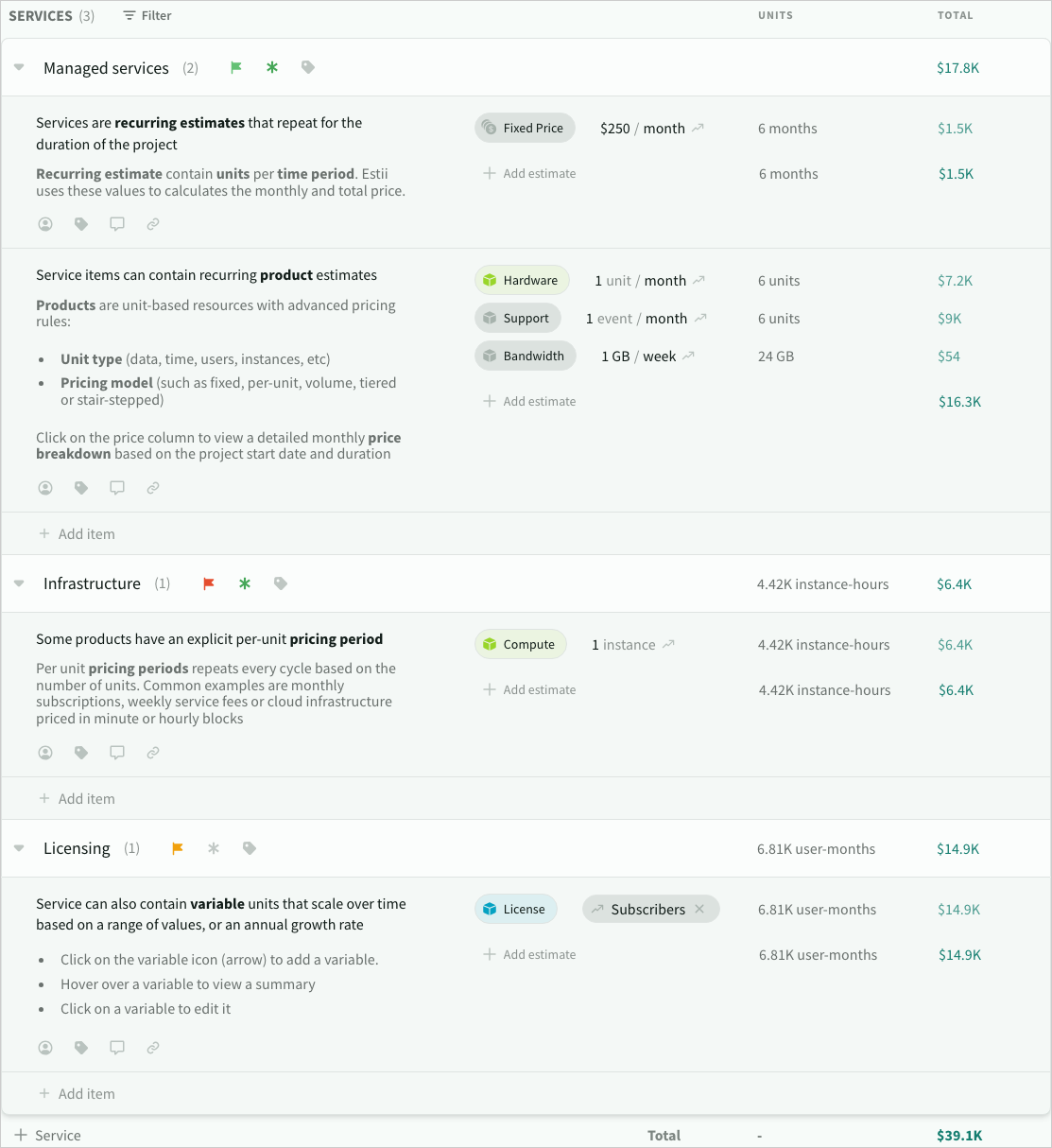 Some examples of the different types of product supported in services
Some examples of the different types of product supported in services
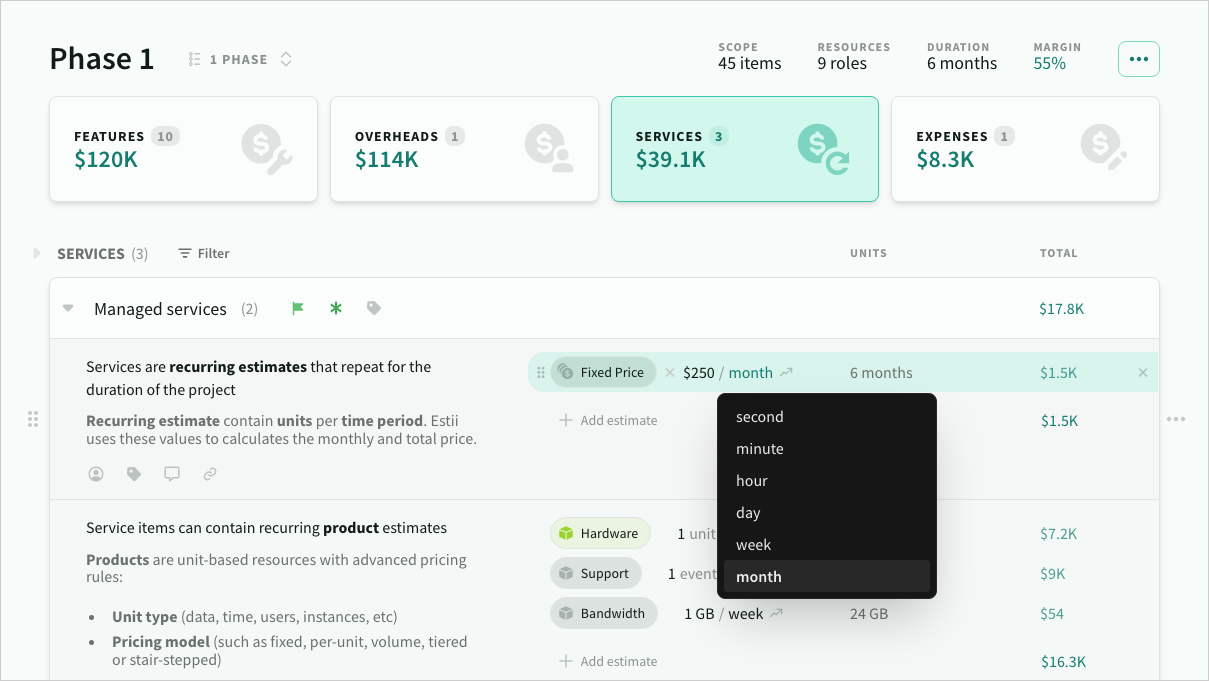 You can either fix the time period within the product, or set one in the estimate
You can either fix the time period within the product, or set one in the estimate
Variables
Variables allow for estimates that change over time based on a predetermined range or growth rate such as user licenses or hosting services that grow with increased activity.
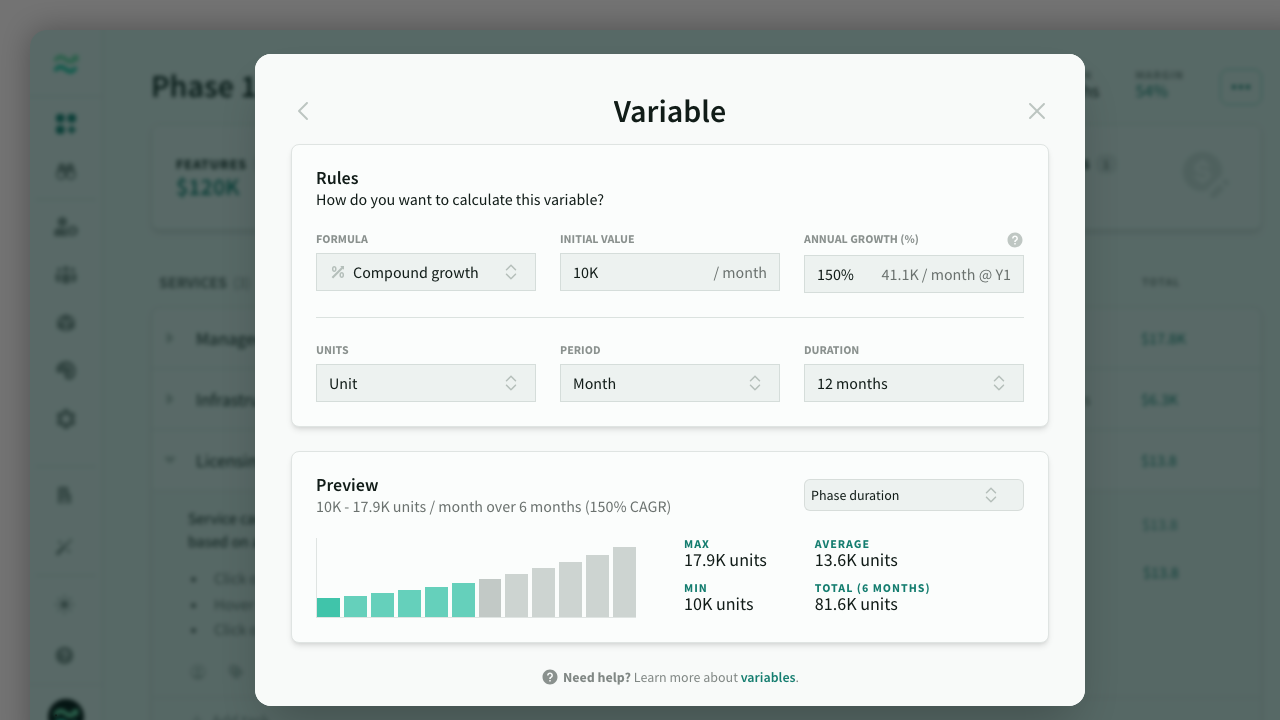 The variable editor
The variable editor
Breakdowns
You can click on any value in the units or total column to view a detailed breakdown of the calculations - this works across all the estimation categories, and is available for individual estimates, items totals, features totals and even page totals!
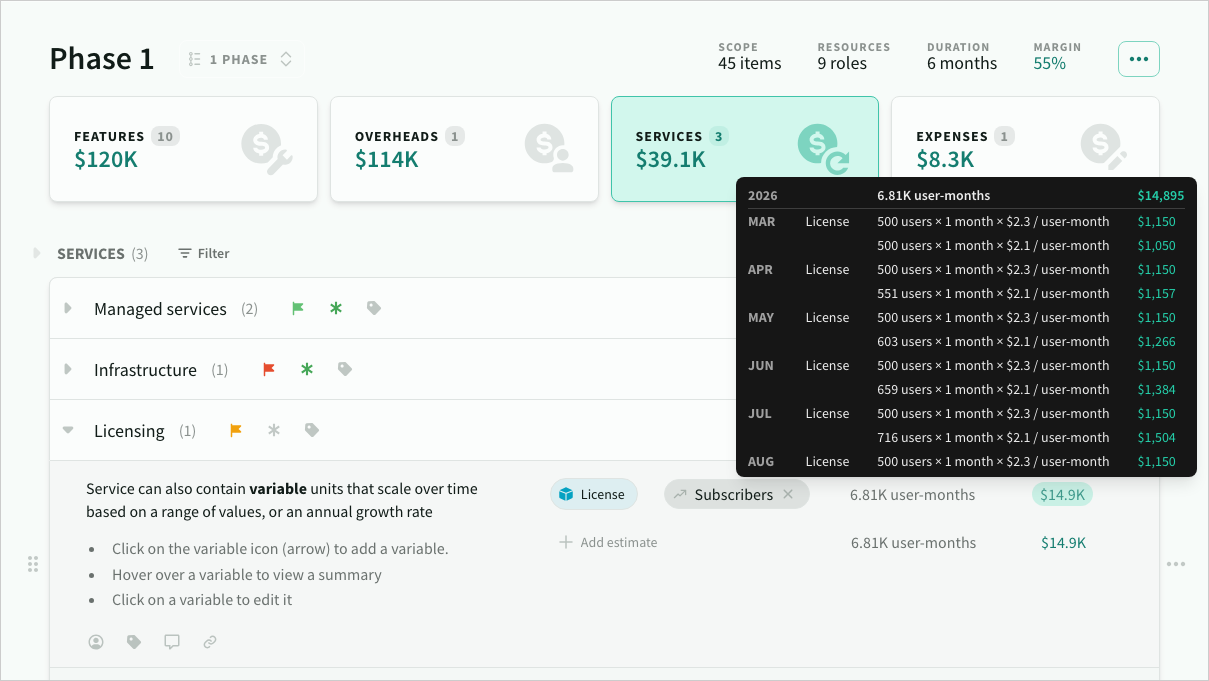 Products contain a breakdown by units and ranges (e.g. tiered pricing)
Products contain a breakdown by units and ranges (e.g. tiered pricing)
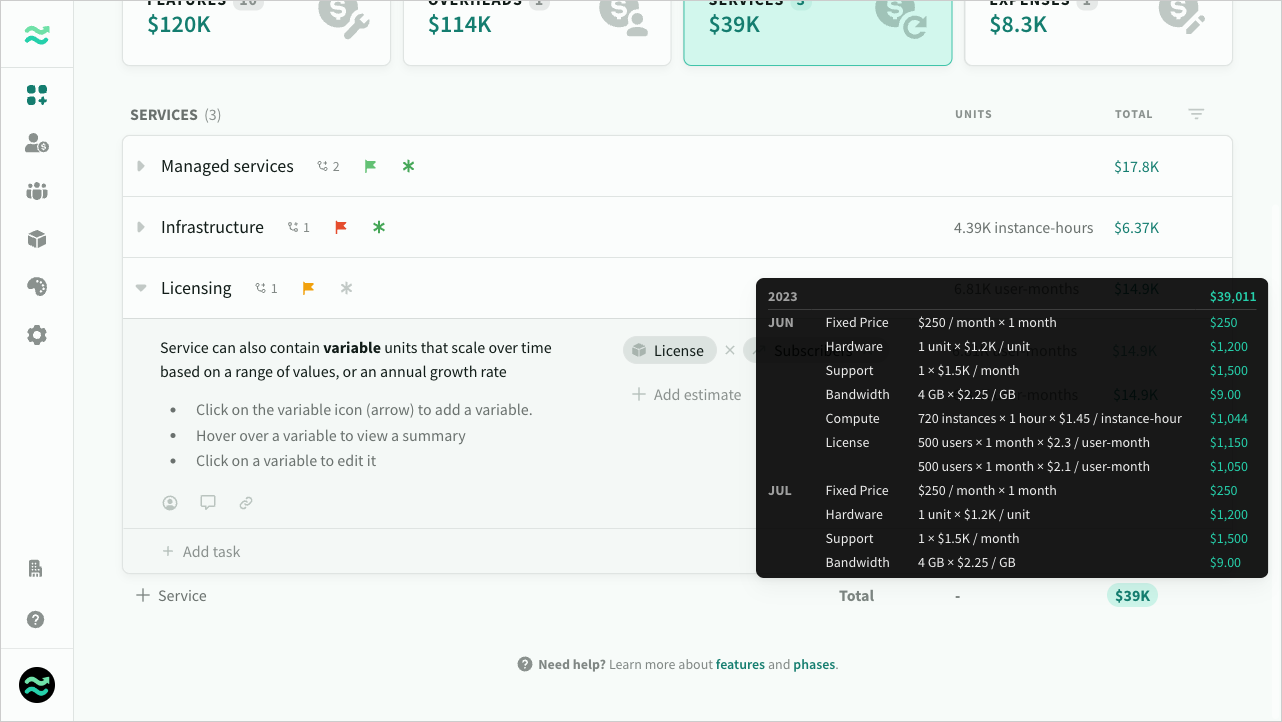 The services total contains a breakdown for all estimated services
The services total contains a breakdown for all estimated services
Limitations
- A phase can have up to 50 services.
- A service can contain up to 20 items
- A service item can have up to 20 estimates
Import / export services
You can bulk import and export services via the ... menu. You can use this to duplicate services between different phases and deals, or to integrate with external platforms.
CSV Format
Both import and export use the same format that supports multiple services and items in order.
| Column | Description | Allowed values/length | Notes |
|---|---|---|---|
| Service | Service name | Maximum 60 characters | Required |
| Priority | Service priority | None, Low, Normal, High, Critical | Required |
| Risk | Service risk | None, Low, Normal, High | Required |
| Item | Item name | Maximum 60 characters | Items only |
| Description | Item description | Maximum 240 characters, supports multiple lines if wrapped in " " quotation marks | Items only |
| Product | The name of an known resource (product) | Maximum 20 per Item | Items only |
| Estimate | The number of units to include | Number (float) | Items only |
| Unit | The unit type of the product | The unit type of the product | Items only |
| Period | The time period (if set) | minute, hour, day, week, month, quarter or year. Defaults to month | Items only. Optional |
CSV Example
Service,Priority,Risk,Item,Description,Resource,Estimate,Unit,Period
Intrastructure,None,None,Cloud costs,"* Assumes production, dev and test environment",Compute,3,instance,
,,,,,Bandwidth,10,GB,
,,,,,Storage,1,GB,
Managed IT services,None,None,Based on volume of managed events,,Backup,1,none,
,,,,,Support package,2,event,
Licensing,None,None,Assumes average of 5K users a month,,Tiered license,500,user,